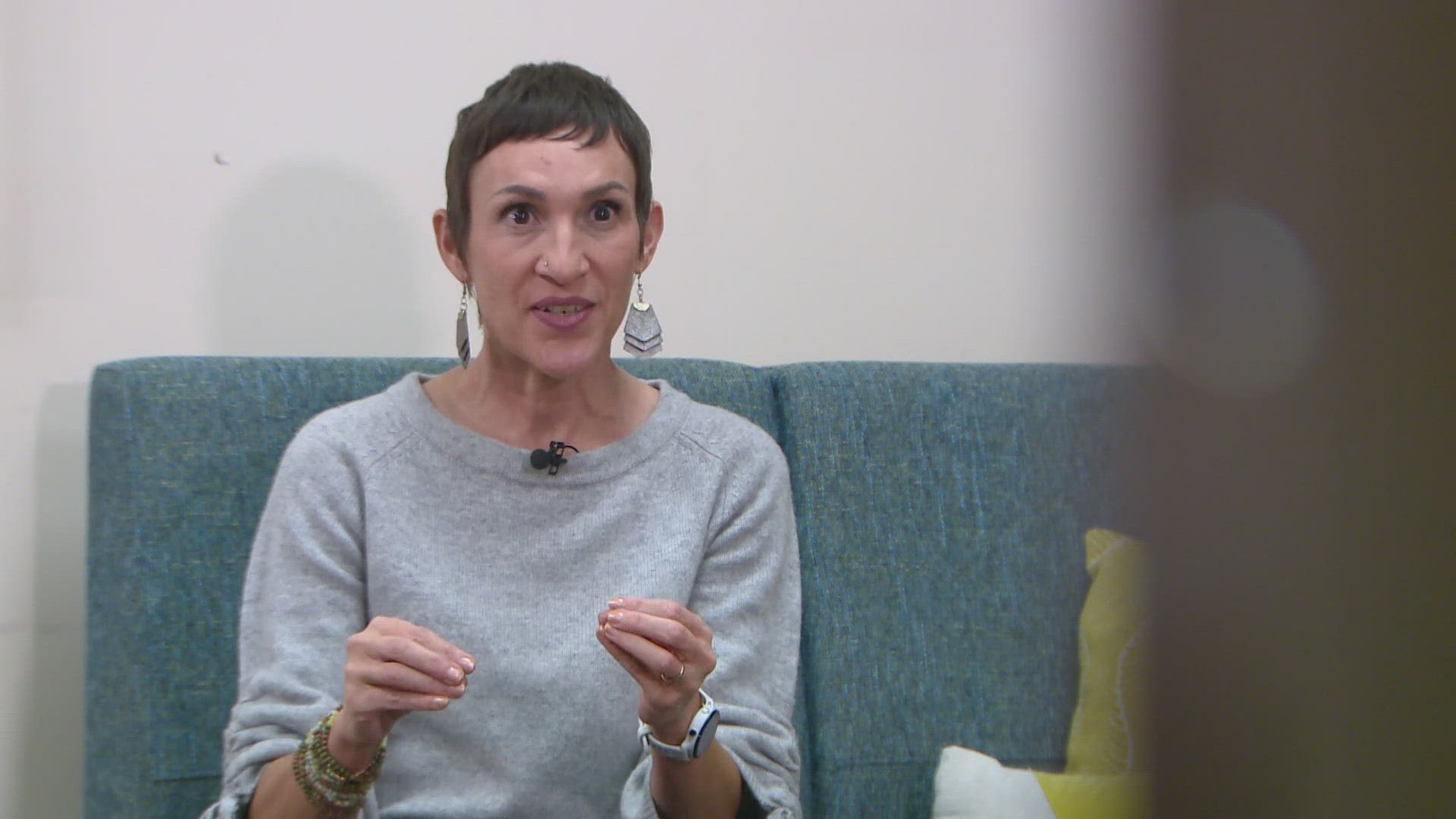DENVER — It's been a year and a half since the Supreme Court overturned the constitutional right to abortion care. In that time, changes in the political landscape have given way to changes in healthcare access to abortion for pregnant people around the country.
Not only has Colorado protected the right to an abortion in state law, the state also protects patients who travel here for an abortion from outside legal threats as well as the medical teams who treat them.
Now, a new report from the Guttmacher Institute finds many women are now crossing state lines to access abortion care.
"It's terrible that people can't get the care they need in their own communities," said Adrienne Mansanares, president & CEO of Planned Parenthood of the Rocky Mountains.
As conservative states rushed to enact bans in the year and a half post-Roe, states like Colorado were flooded with demand.
"Things changed very dramatically," said Melisa Hidalgo-Cuellar, director of the Cobalt Abortion Fund.
Hidalgo-Cuellar said once Roe fell, demand for help to reach Colorado shot up overnight.
In 2021, when Roe was in place, Cobalt provided $206,511 in support, mostly helping women to cover the cost of the procedure with just $6,054 going toward practical support — which helps cover travel and transportation costs for women to reach abortion services in Colorado.
So far this year, Cobalt reports they've provided $874,433 in support, with $333,264 of that going toward those travel and transportation costs.
"Our outlays this year are five times what they were in 2021 before the Supreme court overturned Roe. That's substantial. We're seeing practical support numbers skyrocket every single month," Hidalgo-Cuellar said.
They're not alone.
A new analysis from the Guttmacher Institute found one in five pregnant people who had an abortion in the first half of 2023 traveled out of state for that care.
"I was surprised to see that one in five patients across the country have been traveling. We've certainly seen those numbers in our health centers here in Colorado and in New Mexico, increasingly in southern Nevada. But to see it across the country was very surprising," Mansanares said.
Mansanares said their clinics within Planned Parenthood of the Rocky Mountains see out of state visitor numbers climb higher every time another state bans or limits care.
"Last year, we saw patients from every state in the country. Every state. And the vast majority of them are traveling from Texas," Mansanares said.
Initially, that meant long wait times. So, they added staffing and services to meet the ever-rising demand.
"The way the numbers are looking, the numbers will continue to increase," Mansanares said.
But, she stressed, it's frustrating that women are being forced to travel.
"I think about the hundreds of miles across the state of Texas to get into Santa Fe, which it's snowing in Santa Fe this weekend. We're seeing the weather changing in Denver," Mansanares said. "All of those added concerns and barriers to travel should be considered as we think about patients across the country seeking that care."
Nearly 6 in 10 women seeking abortion care are already parents. Mansanares said when you factor in taking time off work, arranging childcare and the cost of traveling for the procedure, it's a luxury not everyone can afford.
“Not only is it just unfair to think that people should travel for their healthcare, it’s cruel if you think about the financial impacts, the fear and the concern about it," Mansanares said.
Mansanares said she's hopeful that as voters in states take action to protect abortion, like in Ohio and Kansas, the demand for services will begin to ease.
But, she said they'll continue to be here and provide that abortion care in Colorado for those who need it.
"When people have an opportunity to voice their support for abortion care, it passes in those communities," Mansanares said. "So we're here until that happens."
SUGGESTED VIDEOS: Latest from 9NEWS

